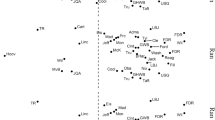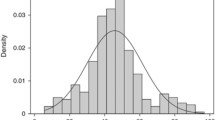Summary and conclusions
In this paper we tested the hypothesis that the performance of the economy is a determinant factor in the voter's preferences. The results obtained enable us to corroborate this notion, since the model has a high predictive value, and the behavior of the economy, both in terms of level of activity as well as in its changes, comes up consistently as a determinant factor of voting behavior. These results are also consistent with those obtained through Chilean polls in which it has been ascertained that economic events, particularly in the case of those who favored the anti-Pinochet option NO, were of utmost importance in the voters' decisions. The results also confirm the idea that, in Chile, women tend to give economic issues a lesser weight in their political preferences.
An implied additional insight is that voters are relatively sophisticated when it comes to interpreting the available information. The most significant economic variables are that of average unemployment throughout the last three years prior to the election, while the variable associated to changes in unemployment over the last year is of lesser consequence. It follows that voters have a “good memory” and willingly write off economic trends which could be deemed as pre-electionary in nature. This entails that, even though economic variables are a key factor in voter's preferences and electoral results, there is no possibility for governments to manipulate these variables and benefit from opportunistic behaviors.
Similar content being viewed by others
References
Arcelus, F. and Meltzer, A.H. (1975). The effect of aggregate economic variables on congressional elections. American Political Science Review 69 (December): 1232–1239.
Buchanan, J.M. and Tullock, G. (1962). The Calculus of Consent. Ann Arbor, MI: University of Michigan Press.
Down, A. (1957). An Economic Theory of Democracy. New York: Harper.
Fair, R. (1978). The effect of economic events on votes for president. Review of Economics and Statistics 60 (May): 159–173.
Frey, B.S. and Schneider, F. (1978). An empirical study of political economic interaction in the U.S. Review of Economics and Statistics 60 (May): 174–183.
Kramer, G.H. (1971). Short run fluctuations in U.S. voting behavior 1896–1964. American Political Science Review 65 (March): 131–143.
Meltzer, A.H. and Vellrath, M. (1975). The effect of economic policies on votes for the presidency: Some evidence from recent elections. The Journal of Law and Economics 18 (December): 781–800.
Mendez, R., Godoy, O., Barros E. and Fontaine, A. (1989). Porque gano el NO?. Estudios Publicos 33 (Summer): 82–134.
Peltzman, S. (1987). Economic conditions and gubernatorial elections. American Economic Review. Papers and Proceedings (May): 293–297.
Stigler, G.J. (1973). General economic conditions and national elections. American Economic Review. Papers and Proceedings (May): 160–167.
Author information
Authors and Affiliations
Rights and permissions
About this article
Cite this article
Panzer, J., Paredes, R.D. The role of economic issues in elections: The case of the 1988 Chilean presidential referendum. Public Choice 71, 51–59 (1991). https://doi.org/10.1007/BF00138450
Received:
Accepted:
Issue Date:
DOI: https://doi.org/10.1007/BF00138450




